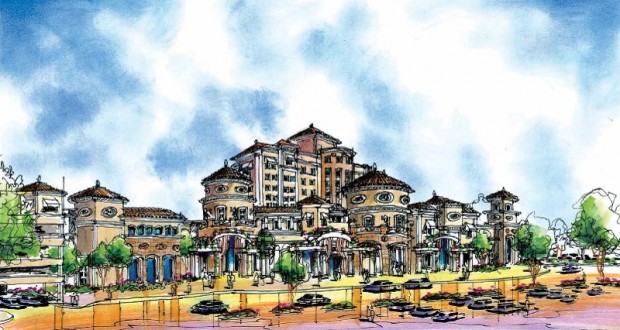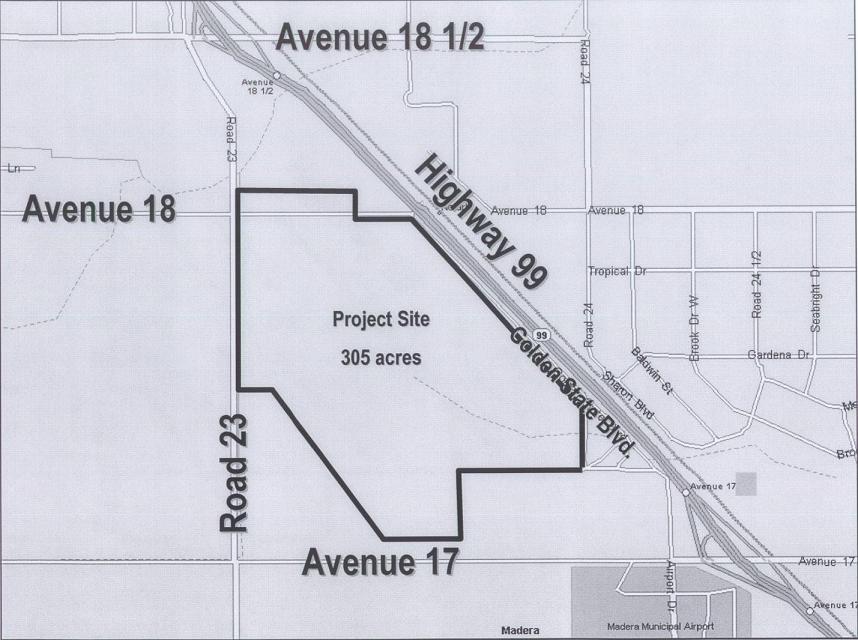MADERA COUNTY — After a dozen years of planning and court battles, the North Fork Rancheria of Mono Indians are once again the target of actions that could jeopardize progress on their Class III casino, planned for 305 acres of land near Madera, and County Supervisors are mad.
H.R. 5079, which was introduced on Apr. 27 in the U.S. House of Representatives, seeks to “amend the Indian Gaming Regulatory Act to require that, in California, certain off-reservation gaming proposals shall be subject to the full ratification and referendum process established by California State law, and for other purposes.”
The bill is being called the “California Compact Protection Act,” and would require the Tribe to be subject to the referendum process if they wish to operate as a Class III casino. This would allow for the possibility that the voters of California could reject the Mono Tribe’s casino as a Class III facility, forcing them to operate as a Class II casino, greatly impacting revenues and job creation.
Class II casinos allow only such things as bingo and pull-tabs, punch boards, tip jars, instant bingo, and non–banking card games like poker. Class III casinos generate substantially more revenue by offering slot machines, blackjack, roulette, craps and other games that the public would commonly associate with casino play.
The Madera County Board of Supervisors is not taking this lying down, and sent a strongly worded letter to Jeff Denham, (R-CA-10), calling draft H.R. 5079 a “wildly unfair and misdirected attempt at lawmaking,” and expressing “deep dismay and disappointment” at his personal participation in the bill, which is being sponsored by Doug LaMalfa (R-CA-1), and co-sponsored by Denham, Raul Ruiz, (D-CA-36), Paul Cook (R-CA-8) and Jared Huffman (D-CA-2).
Madera County District 3 Supervisor and Board Chairman Rick Farinelli sent a letter on behalf of the entire Board, stating as follows:
“If this legislation is inconceivably passed into law, it will accomplish absolutely nothing constructive – except putting at risk over 12 years of cooperation between our community and the North Fork Rancheria (“Tribe”). We hope you will seriously reconsider your sponsorship of H.R. 5079, preferably withdrawing it in advance of the scheduling of any hearing.
“As you know, Madera County is repeatedly on record as supporting the North Fork gaming project, joining every local jurisdiction, business chamber, and employment and economic development agency in having either a formal position of support or a standing partnership agreement with the Tribe concerning its project.
“Support for the project stems from several factors including the enormous positive employment and economic benefits it will bring our region as well as the careful, respectful, collaborative approach taken by the Tribe to engage the community, mitigate any significant potential impacts, and contribute generously through local MOU agreements – benefits you personally called out over a decade ago during the Senate GO Committee Hearing held here in Madera:
“’We’ve seen North Fork come to the table early, work with local government and come up with mitigating some of the challenges that we see here in the valley, everything from unemployment to some of the need for transportation funding and for the law enforcement funding. So I believe this is unprecedented. And I think this is a good-faith attempt to work government to government in some of these negotiations.’
– Senator Jeff Denham, May 19, 2005
“The fact is that for more than 12 years the North Fork Rancheria has diligently pursued its gaming project as specifically allowed by federal law and prevailed through every local, state, and federal administrative review and approval. For the past 4 years, the Tribe has responded to and overcome every legal challenge put forth by wealthy gaming tribes and their investors intended to delay or diminish the project. Now at the 11th hour, this unprecedented legislative maneuver seeks to undo all this work and progress and merely add to the already enormous costs incurred by the Tribe and community as a result of such cynical tactics.
“This last minute attempt to change the rules (that have applied to other California tribes for more than 20 years) will not remove the Tribe’s land in Madera from being in trust nor will it remove the Tribe’s right to conduct gaming on that land. By denying the North Fork Rancheria the right to operate Class III gaming, H.R. 5079 will end up simply forcing the Tribe to operate Class II gaming that kills jobs and economic opportunities by preventing the investment that accompanies the “highest and best” economic use of the land, jeopardizes local MOU and non-gaming tribe payments as well as worker and customer protections required by secretarial procedures, undermines state participation in the regulation of gaming on the land, punitively and retroactively penalizes a Tribe and community that followed all existing rules, unjustly removes a reasonable, fair legal remedy for bad faith dealings, and, upends 30 years of established federal Indian gaming law (IGRA) to the detriment of tribes across the nation.
“In summary, Madera County has seen firsthand the enormous benefits tribal-government gaming can bring to a community when done right. Sadly, we’ve also experienced firsthand the economic costs of lost jobs and revenues caused by out-of-control greed and politics. We vastly prefer the former scenario as represented by the North Fork project. Our region desperately needs new jobs and development and this project offers financial rewards for both the county and state.
“Delay and obstruction of this project have already cost our region thousands of jobs and hundreds of millions of dollars in lost economic benefits. This must end! We look forward to the jobs and economic development the North Fork Project will bring to the Tribe and our County and formally ask that you withdraw your support for the proposed H.R. 5079 legislation and do everything possible to prevent its passage.”
Rick Farinelli, Chairman
On Behalf of the Madera County Board of Supervisors
So after battling for nearly 13 years as they were sued by competing casinos and activists, and Prop. 48 — which would have ratified their compact with the State — went down in defeat last November, the North Fork Rancheria of Mono Indians has yet another threat to their project looming on the horizon.
Some history of the casino project:
After the Tribe’s land in the North Fork area was deemed unsuitable for tribal gaming, they applied to the U.S. Department of the Interior to have 305 acres north of Madera taken into trust for the purposes of gaming, and in 2011, the application was approved by the Secretary of the Interior.
In August 2012, Governor Jerry Brown concurred with the decision to accept the land into trust. The California State Legislature then passed AB 277 in June of 2013, thereby ratifying the compact that had been negotiated between the Tribe and the State, and in October 2013, the North Fork Compact was published in the Federal Register.
However, there was continuing opposition to the Mono casino project from several entities who worked to put it to a vote of the people through the referendum process. That door was opened when AB277 failed to pass by a 2/3 majority when it was ratified in the legislature.
Stand Up California! was joined by Table Mountain Rancheria, the Chukchansi Gold Resort and Casino, the Chukchansi Economic Development Council and others to collect signatures and put Prop. 48 on the November 2014 ballot. The move was aimed at overturning the legislature’s ratification of the Tribal-State compact.
On Nov. 4, 2014, California voters rejected the Indian Gaming Compacts Referendum, (Prop. 48) to ratify the North Fork compact, along with that of the Wiyot Tribe. According to court documents, the State of California then refused to recognize the existence of a valid Tribal-State compact with the North Fork Tribe, and the Tribe filed suit, challenging the validity of the referendum, and asking the Court to compel the State to negotiate.
Documents filed by the Tribe in U.S. District Court in Fresno presented arguments that National Indian Gaming Commission (NIGC) regulations require that if the state allows gaming for Indian tribes, and if a tribe has land that has been approved for gaming through the NIGC and the Department of Interior, the State must enter into a compact with the Tribe. The judge agreed, and ordered them back to bargaining table.
On Nov. 13, 2015, Judge Anthony Ishii, U.S. District Court in Fresno, handed down a ruling ordering that the State and the North Fork Tribe conclude a compact within 60 days. The State of California chose not to appeal a federal judge’s ruling that they had failed to negotiate in good faith with the Tribe within the allotted time, and the project appeared to be back on track.
Now, however, Congress will be considering whether or not to force the Tribe to go through the referendum process again, and let the voters decide whether or not they get the casino they have planned.
To read the full text of H.R. 5079, click https://www.congress.gov/bill/114th-congress/house-bill/5079/text





